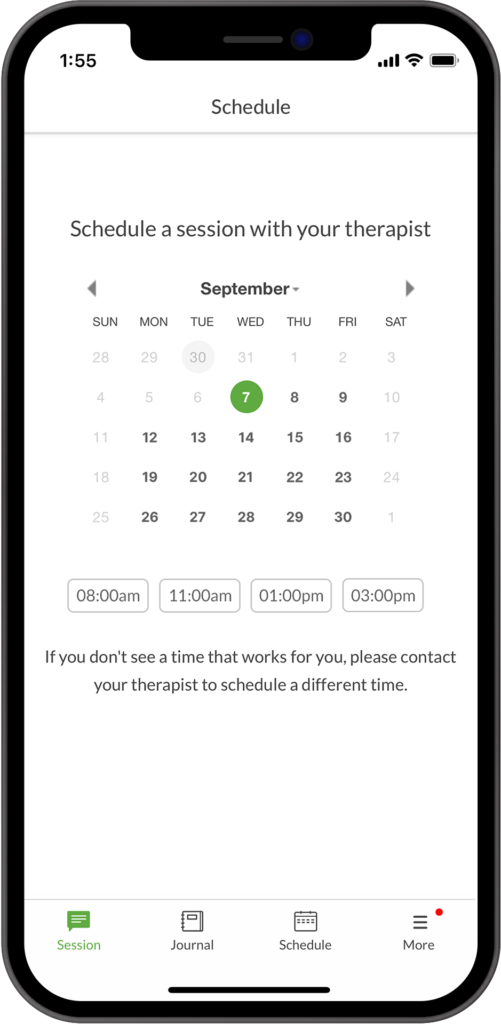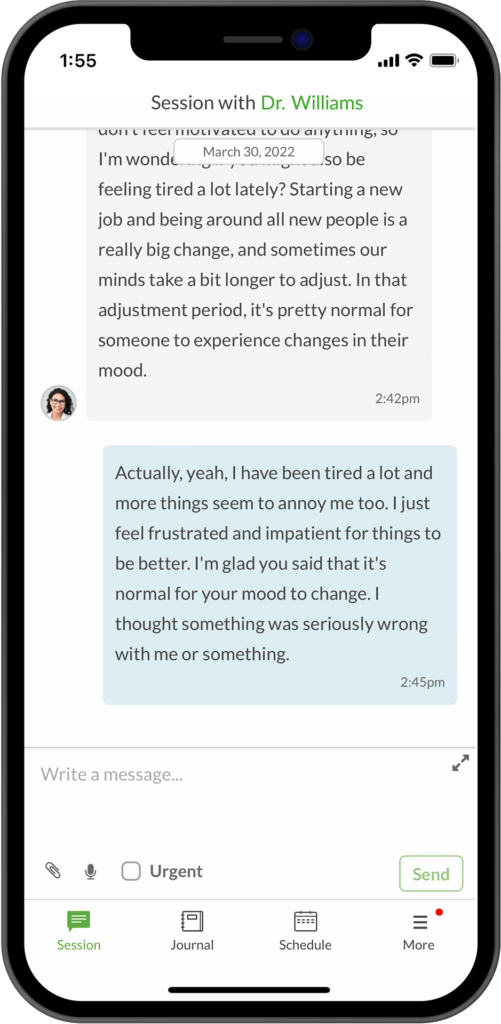We all face challenges in life that test us, but there are some difficulties that come up that we may need deeper help with so here are 10 signs you need a therapist and what to expect when you do.

While occasional stress, sadness, or anxiety are just a normal part of life, sometimes these feelings persist and begin to mess with daily functioning. Knowing when it’s time to seek professional help can be challenging. So if you’re struggling and feeling really stressed it might be time to get some therapy which can offer a powerful resource for navigating life’s complexities.
This guide explores ten common signs that it might be time to see a therapist and provides insight into what you can expect from the therapeutic process.
Table of Contents
When Should You Consider Therapy?
1. Your Emotions Feel Overwhelming or Unmanageable
We all experience difficult emotions, but when feelings of sadness, anxiety, or anger become so intense that they interfere with your ability to function normally, it may be time to seek help. If you find yourself unable to control emotional responses or feeling “stuck” in negative emotional patterns, a therapist can help you develop effective coping strategies.
2. You’re Experiencing Significant Life Changes
Major life transitions—positive or negative—can trigger stress responses that benefit from professional help. These could include:
- Career changes or job loss
- Marriage or divorce
- Having a baby or becoming an empty-nester
- Moving to a new city
- Loss of a loved one
- Serious illness or injury
A therapist can help you navigate these transitions with greater ease and resilience.
3. Your Relationships Are Suffering
If you notice recurring conflicts in your relationships or feel increasingly isolated from others, therapy can provide valuable perspective. Relationship patterns often stem from early life experiences, and a therapist can help you identify unhelpful patterns and develop healthier ways of connecting.
4. You’re Using Substances or Behaviors to Cope
Turning to alcohol, drugs, food, gambling, or other potentially harmful behaviors to manage difficult emotions can signal that your coping mechanisms need strengthening. Therapy offers healthier alternatives for managing stress and emotional pain.
5. Your Sleep Patterns Have Changed
Significant changes in sleep—whether sleeping too much or experiencing insomnia—often indicate underlying emotional or mental health concerns. Persistent sleep disturbances that aren’t resolved through improved sleep hygiene may benefit from therapeutic intervention. Struggling with insomnia – checkout this post for helpful guidance.
6. Your Performance at Work or School Has Declined
Difficulty concentrating, decreased productivity, or loss of interest in activities you used to enjoy means there’s something deeper going on that needs your attention. These cognitive symptoms often accompany emotional distress and can improve with therapy.
7. You’ve Experienced Trauma
Traumatic experiences can have lasting effects on mental health, even years after the event. If you’ve experienced trauma and notice symptoms such as flashbacks, nightmares, hypervigilance, or emotional numbness, specialized trauma therapy can help you process these experiences and reduce their impact on your life.
8. Your Physical Health Is Suffering Without Clear Medical Cause
Chronic headaches, digestive issues, unexplained pain, and other physical symptoms sometimes stem from psychological distress. When medical evaluations don’t reveal a clear physical cause for symptoms, exploring psychological factors with a therapist might provide relief.
9. Friends or Family Have Expressed Concern
Sometimes others notice changes in our behavior or mood before we do. If loved ones have gently suggested that you might benefit from talking to someone, their outside perspective could offer valuable insight worth considering.
10. You’re Curious About Personal Growth
Therapy isn’t only for crisis situations. Many seek therapy for personal development, deeper self-understanding, or to break free from limiting patterns. Viewing therapy as a tool for growth rather than a last resort can open doors to lasting personal transformation.
What to Expect When Starting Therapy
If you’ve identified with several signs above and decided to pursue therapy, you might wonder what’s next. Here’s what you can generally expect:
Finding the Right Therapist
The therapeutic relationship is crucial to effective therapy. You’ll want to find someone with:
- Expertise in your area of concern
- A therapeutic approach that resonates with you
- A personality and communication style that feels comfortable
Most therapists offer initial consultations to help determine if they’re a good fit for your needs. Don’t hesitate to interview several therapists before making your choice.
For more checkout this previous post – What Kind Of Therapist Do I Need?
The First Session
Initial sessions typically involve:
- Completing paperwork about your history and concerns
- Discussing confidentiality and office policies
- Sharing what brings you to therapy
- Beginning to establish therapeutic goals
Your therapist will likely ask questions to understand your situation better, but you control how much you share and how quickly the process unfolds.
The Ongoing Process
As therapy continues, you might:
- Explore patterns in your thoughts, feelings, and behaviors
- Learn new coping skills and stress management techniques
- Gain insights about yourself and your relationships
- Work through difficult emotions in a safe environment
- Practice new ways of responding to challenging situations
Remember that therapy is rarely linear—progress often involves both breakthroughs and setbacks. A good therapist will help you navigate this journey with patience and support.
The Best Resource And How To Find The Perfect Therapist



If you’re interested in learning more about online therapy, I recommend checking out BetterHelp. They offer online therapy sessions with licensed therapists at an affordable price point.
As you know I’m a huge proponent of Mental Wellness and ensuring we all get the help we need when we need it. And of course, I don’t want you just to get any help I want you to get the right help so I am now sponsored by BetterHelp.
BetterHelp is the world’s largest therapy service, and it’s 100% online.
BetterHelp offers a network of over 25,000 licensed and experienced therapists who can help you with a wide range of issues.
Just click on the link below, answer a few questions and get matched with a therapist from the network.
One of the most amazing features of BetterHelp, if you don’t jive with your therapist you can switch to a new one that’s a better fit for you any time free of charge.
With BetterHelp, you get the same professionalism and quality you expect from in-office therapy, but with a therapist who is custom-picked for you, more scheduling flexibility, and at a more affordable price.
Final Thoughts
Seeking therapy is a courageous step toward better mental health and well-being. In a world where we readily seek help for physical ailments, extending the same care to our mental and emotional health simply makes sense.
Whether you’re facing a crisis or simply want to understand yourself better, therapy offers a valuable space for reflection, growth, and healing. By recognizing the signs that indicate therapy might be helpful and understanding what to expect from the process, you’ve already begun the journey toward greater emotional wellness.
Remember: reaching out for support isn’t a sign of weakness but rather a powerful act of self-care that can transform your relationship with yourself and others.

Comments +
10 Signs You Need A Therapist
Mental Health